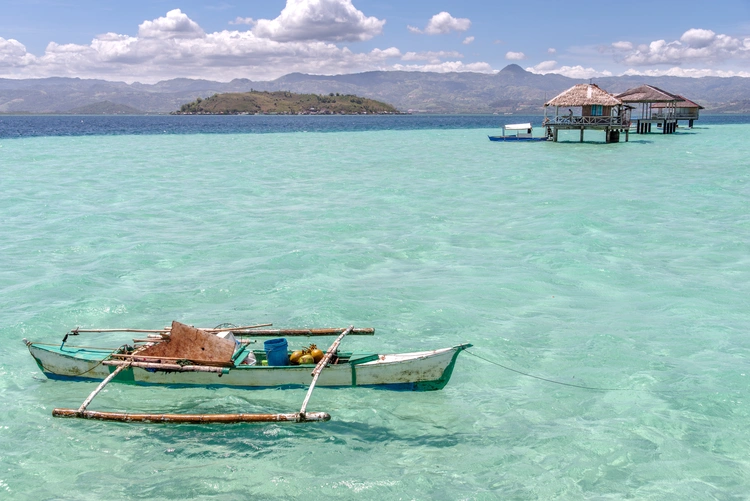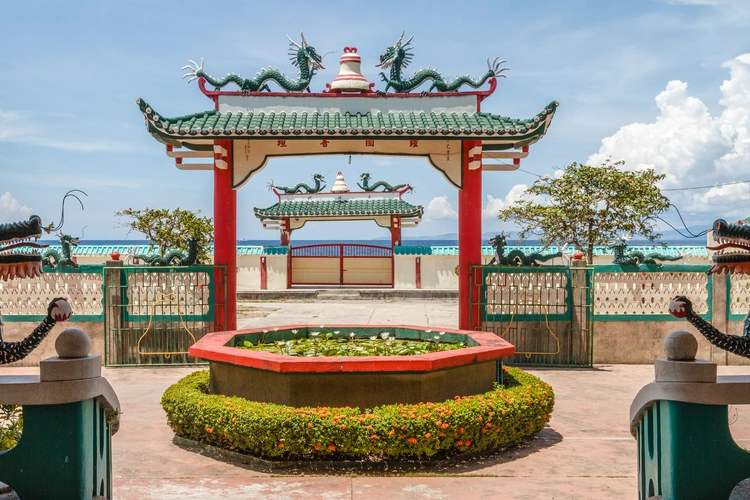Finding Home
Properties shape us more than we know. Settling into my new apartment here in Paris stirred up memories of all...
Read more
Lief Simon is the managing editor of Global Property Advisor, Simon Letter, and Offshore Living Letter. He has purchased more than 45 properties, investing in 23 different countries around the world.

There are many good reasons to consider retiring in Dumaguete. Firstly, it is located along a sheltered coast on the island of Negros, the city is protected against most of the typhoons that periodically batter many of the Philippines’ 7,107 islands.
The weather is tropical and balmy—rarely too hot, but occasionally cool enough to wear a light sweater or jacket in the evening.
Dumaguete offers excellent medical care, too—care that has been getting even better since the city was named one of the five top retirement destinations in the Philippines.
Dumaguete is rich in natural beauty, with an abundance of indoor and outdoor activities. Also, it is a place where you can take advantage of one of the best residency programs in the world.
So, it’s easy to see why several thousand foreigners have decided to make Dumaguete their permanent home.
The local tourism office describes Dumaguete (pronounced “Doo ma GET tee”) as “bustling yet charming,” and this really does describe the city well. When you first arrive, you may be put off by the cacophony of loud motorbikes and a cityscape that looks a bit “well used,” but as you linger, the town will grow on you.
The longer you stay, the nicer Dumaguete becomes, and many foreigners who originally traveled here for a vacation have remained for years.
Most importantly, English speakers will have no difficulty at all here, as English is an official language of the Philippines and most people are fluent.
Silliman University, founded in 1901, is the province’s largest school and it’s a commanding presence in central Dumaguete. The college campus covers over 610,000 square meters, mainly in the downtown area. Silliman was Southeast Asia’s first private American university, as well as the first Protestant university to be founded in the predominantly Catholic Philippines.
In addition to offering a wide range of classes for degree-seeking students, Silliman hosts a teaching hospital, several museums, and the largest library in the southern Philippines. Frequent art exhibits and cultural events, including concerts and ballet, are offered at the university.
Around 5,000 or more expats live in Dumaguete, so there is a large expat community here and plenty of ways for you to connect if you’re new to the city.
Expats advise to come along to the many festivals and events that are celebrated each year. You’ll get to experience the culture of the city and meet lots of new people…locals and expats alike.
Explore the local markets and get chatting to the vendors, too. There are markets held every week and it’s a great opportunity to get to know people and also support the local community.
Other ways to meet like-minded folks is to join local clubs and organizations or become a volunteer. Whatever your interests—photography, art, sports, etc.—you’ll find a club that’s suited to you and make new friends along the way.

Dumaguete offers a very low cost of living. It’s easy to see why several thousand foreigners have decided to make the city their permanent home.
The Philippines encourages foreign retirees to immigrate to the country using excellent incentives, including duty-free importation of household belongings.
The financial requirements needed to qualify for a Special Resident Retiree Visa (SRRV) are very low.
Housing is good value in Dumaguete and the surrounding area. And, if you can manage a housing budget of $400 to $500, you will have no difficulty finding a modern and comfortable home.
One of the other advantages of living in a university town is the abundance of inexpensive restaurants that cater to “poor” college students. For instance, dining out is a very popular and affordable pastime here.
Two people can enjoy a fine Western meal at one of the better restaurants in town, complete with drinks, for about $10. If you want to go out for local food, you can expect to pay less than half that.
Let’s take a closer look at the cost of living in Dumaguete, The Philippines.
Start Your New Life Today, Overseas
| Expense | Monthly Cost | Notes |
|---|---|---|
| Rent | US$400 | Two-bedroom apartment in the city center. |
| Transportation | US$30 | Monthly pass for a couple. |
| Utilities | US$82 | Electricity, including heating and cooling, and water. Internet and Cable TV. |
| Cell Phone | US$44 | Monthly plan with calls and 10GB + data. |
| Entertainment | US$156 | Eating out twice a week at a local restaurant. Beers twice a week at a local pub. Movie theatre trip twice a month. |
| Groceries | US$200 | Monthly grocery haul. |
| Household Help | US$40 | Twice per week. |
| Total | US$952 |
Click here for currency conversion at today’s exchange rate.
Dumaguete is one of the best places to live in the Philippines and the city and surrounds have a lot to offer expats and visitors alike. Take a walk along Boulevard Stroll, visit the cathedral and universities, and check out a market or three.
Here are a few more must-sees:
Visit the Talabong Mangrove Park and Sanctuary to see wild animals and birds in their natural habitat.
Go hiking at Mount Kanlaon. At 2,430 meters high, this volcanic mountain is a popular three-day hike to the summit. Along the way you’ll see amazing wildlife and hot springs.
An hour from Dumaguete you can take a boat to spot dolphins at Tanon Strait.
Go swimming at Pulangbato Falls or swim and picnic at Balanan Lake—a freshwater lake surrounded by mountains and forest.
Start Your New Life Today, Overseas
Dumaguete is a safe place to live, though it isn’t crime-free. Pockets of extreme poverty create an environment that leads some people to engage in petty crime. The local police are not considered overly effective investigators either.
Locals here complain about cat burglars, and most of the nicer homes in this area are surrounded by high walls and barbed wire…or have other security systems.
A common form of Philippian safety measures is found in nearly all of the newer housing developments. Most homes expats in the Philippines should consider are gated and guarded. Also, many people keep dogs to guard and protect their homes.
Keep in mind that the Philippines is a poor country, so be aware of pickpockets or anything that sounds “too good to be true,” because it probably is.
It’s wise to keep your doors locked and exercise the usual level of common sense that you would use anywhere.
The Philippines private health care sector is booming. And, it’s fueling a fast-growing medical tourism industry.
You’ll find all kinds of hospitals in the Philippines. The ones considered “first rate” here might be rated average in the United States. Those that are charity hospitals here would probably not suit a foreigner.
However, there are a couple of important points an expat needs to know about the difference between hospitals in the Philippines and Western countries.
The actual medical care provided by doctors and nurses is similar. But, the day-to-day care of the patient is left to family members.
It is expected that patients will have family members stay with them throughout their whole hospital stay. So, it is the family’s responsibility to change the bed linens, get water, and even to help the patient bathe, get to the bathroom, and eat.
The second point is that a hospital can refuse you care if you do not have the cash to pay for it. And be warned, you will often need to pay in advance for treatment.
Medical care in Dumaguete is excellent, in part because it has been targeted by the government as one of five areas in the Philippines designated as top retirement hubs.
Dumaguete’s Silliman Medical Center is considered one of most modern hospitals in the country and specialists here charge just 500 pesos ($9) for a consultation.
All throughout Dumaguete you will find dental clinics. The quality of care is good, and prices are quite reasonable.
For example, a checkup and cleaning at most clinics will cost around US$10, and other inexpensive dental services are also available.
You will need health insurance if you are planning to relocate to the Philippines. Make sure you check your policy thoroughly for any exclusions. Some health insurance providers will not cover expats over the age of 65. One option for over 65’s is to buy six-month health insurance which you can update until you turn 70.
PhilHealth is available to expats. You will need to go to a health insurance office and complete a registration form.
Once you have been accepted you will get an ID car and number in the PhilHealth system. You will need to pay a monthly contribution.
The PhilHealth ID card can be used as ID for everyday life in the Philippines.
Year-round temperatures in Dumaguete range from 85°F to 88°F.
May is the hottest month in Dumaguete with temperatures reaching as high as 89°F.
The coolest month in Dumaguete is February.
The wettest month is July with an average of 9.7 inches of rainfall and April is the driest month.
The official language of the Philippines is English, and most people are fluent.
The most common forms of public transportation in the Philippines, including in Dumaguete, are buses, “jeepneys,” taxis, and electric scooters or tricycles.
Properties shape us more than we know. Settling into my new apartment here in Paris stirred up memories of all...
Read moreGood-Weather Tagaytay Is Emerging As A Top Choice For The Retiree On A Budget The city of Tagaytay is one...
Read moreProperties shape us more than we know. Settling into my new apartment here in Paris stirred...
Read moreWe've all read axioms about travel... "It's not the destination, it's the journey... " Or this from J.R.R. Tolkien: "Not all those who wander are lost... " Or this gem from Caskie Stinnett, which rings so true to me: "I travel a lot; I hate having my life disrupted by routine." Why, when choosing to retire abroad, must it be a matter of exchanging one home in one location for another in a new location? One daily routine for another?...
Read more
© 2008 - 2024 Live and Invest Overseas - All Rights Reserved.
Sign up to receive the FREE daily e-letter, Overseas Opportunity Letter and we’ll immediately email you our editors’ latest research report…
RETIRE OVERSEAS AND LIVE LIKE ROYALTY
Are The Philippines Your Dream Destination?
© 2008 - 2024 Live and Invest Overseas - All Rights Reserved.